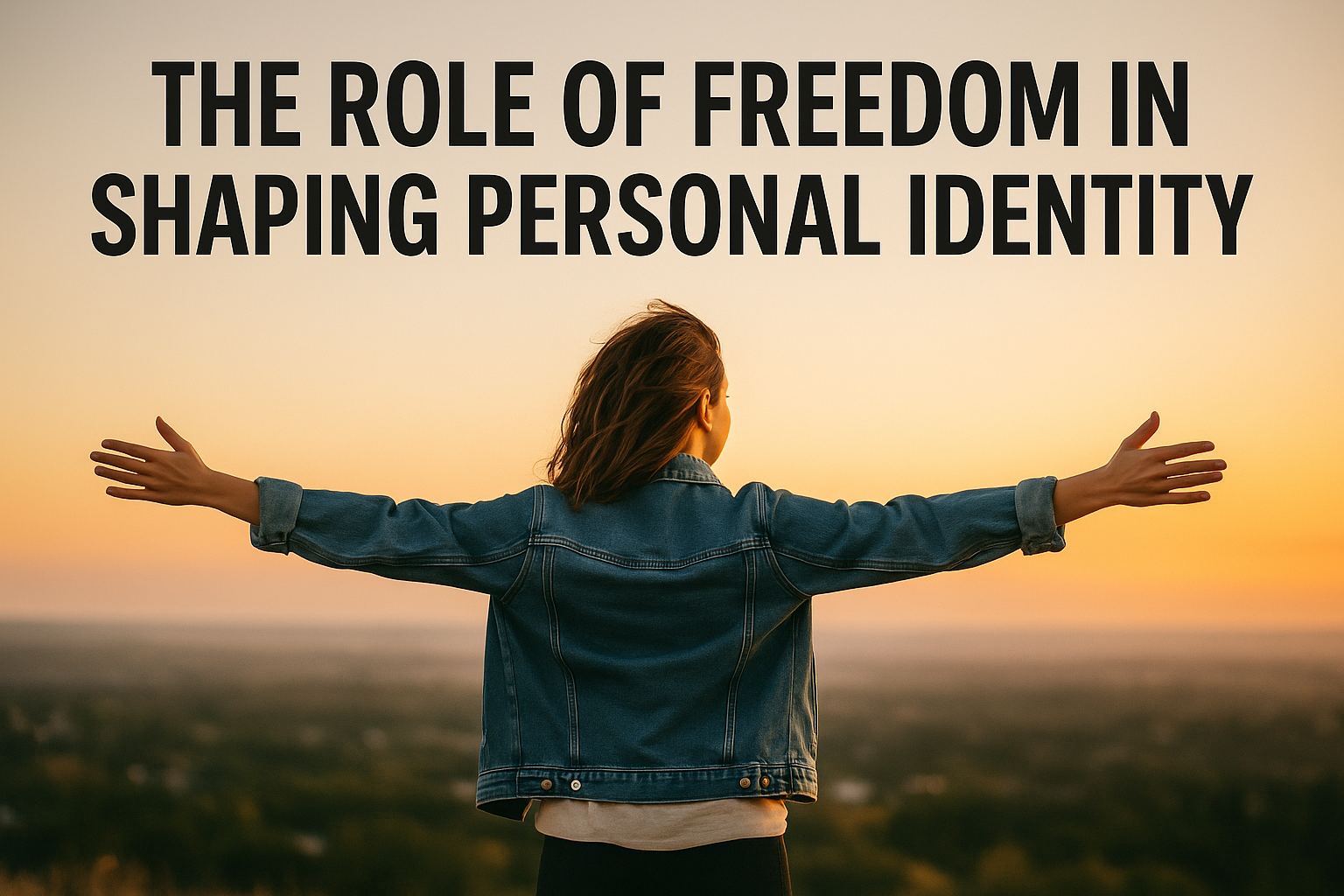Identity is the core of who we are—our values, beliefs, preferences, and personality traits. It’s what makes us unique and gives meaning to our lives. But identity doesn’t form in isolation; it’s shaped through choices, experiences, and expression. At the heart of this process lies a powerful force: freedom.
Freedom isn’t just about having rights or avoiding restrictions. It’s about the ability to explore, define, and express yourself without fear, judgment, or imposed limitations. In this article, we’ll explore how freedom plays a fundamental role in the construction of identity—and how embracing it can lead to a more authentic and fulfilling life.
Understanding Personal Identity
Personal identity includes various aspects of your life:
- Core values: What you believe is important
- Beliefs and opinions: Your worldview and perspectives
- Personality traits: How you think, feel, and behave
- Life roles: Your roles in family, work, society
- Cultural background: Traditions, heritage, and community
Building a strong identity involves discovering who you are, choosing what you stand for, and living in alignment with those truths.
Why Freedom Is Essential in Identity Formation
1. Freedom to Explore
Self-discovery begins with exploration. You need freedom to try new experiences, interact with different people, and ask meaningful questions about life.
This kind of freedom encourages:
- Trying different hobbies, interests, and careers
- Traveling or living in different environments
- Engaging with diverse communities and cultures
Without freedom to explore, people often adopt the identities imposed on them by family, society, or tradition—never realizing who they truly are.
2. Freedom to Choose
Your identity should be a reflection of your choices—not your circumstances. Freedom allows you to make decisions based on your beliefs, passions, and purpose.
For example:
- Choosing a profession that aligns with your calling
- Choosing relationships that respect and uplift you
- Choosing a lifestyle that supports your mental and emotional well-being
Each choice, no matter how small, helps define your path and clarify your identity.
3. Freedom from Fear and Judgment
Fear of rejection or criticism often forces people to hide who they are. But when you’re free from the need to please others, your true identity can emerge.
Freedom from fear allows you to:
- Express unpopular opinions
- Be vulnerable and honest
- Break away from social or cultural expectations
You stop asking, “What will they think?” and start asking, “What feels true to me?”
4. Freedom to Evolve
Identity is not fixed. As we grow, learn, and experience life, our sense of self naturally changes. Freedom provides the space to evolve without guilt or pressure.
You might:
- Shift beliefs as you gain new insights
- Change careers to align with your purpose
- Redefine personal boundaries or relationships
The freedom to evolve means you are not trapped by who you used to be. You have permission to become who you are meant to be.
5. Freedom of Expression
Identity doesn’t just exist inside you—it’s something you express. Whether through clothing, language, art, or behavior, self-expression helps solidify your identity.
With freedom of expression, you can:
- Dress in a way that reflects your personality
- Create art, music, or writing that tells your story
- Speak in your natural tone without fear of being silenced
Expression is where identity becomes visible. It is a vital part of self-affirmation and empowerment.
Challenges to Freedom in Identity Construction
Even in modern societies, many people face challenges to freedom in shaping their identities. These include:
- Cultural pressure: Being expected to follow family traditions
- Social stigma: Facing discrimination based on race, gender, sexuality, or religion
- Internalized beliefs: Carrying guilt, shame, or unworthiness from past experiences
- Limited access: Being in environments that restrict opportunities or exposure
Acknowledging these challenges is crucial. They highlight the importance of fighting for more inclusive, safe, and empowering spaces for identity development.
How to Use Freedom to Build a Stronger Identity
Here are some steps to actively use your freedom in building a stronger, more authentic identity:
Reflect Regularly
Ask yourself:
- What values guide my decisions?
- Which parts of my identity feel true?
- Where am I conforming instead of choosing?
Self-reflection creates clarity and helps you realign with your true self.
Create a Safe Environment
Surround yourself with people who support your journey—not those who try to control or define you. Seek out communities that allow space for growth, creativity, and individuality.
Take Bold Steps
Freedom is sometimes uncomfortable. It asks you to step out of your comfort zone, challenge the status quo, and face fears. But it’s through these bold steps that you discover who you really are.
Try:
- Saying “no” to what doesn’t serve you
- Trying something new—even if you fail
- Speaking your truth, even when it’s hard
Accept That You Will Change
Your identity is not a destination—it’s a lifelong journey. Embrace change as a sign of growth. Let go of outdated versions of yourself to make room for who you are becoming.
Conclusion: Freedom is the Root of True Identity
You cannot become who you truly are without freedom. It’s the soil in which your identity grows. It allows you to explore, choose, express, and evolve without fear or limitation.
By embracing freedom, you stop living as who others expect you to be—and start living as who you truly are. This is not only the foundation of identity but the beginning of a life filled with authenticity, meaning, and self-respect.
So ask yourself: What would my life look like if I lived it freely, fully, and on my own terms?
Then, give yourself permission to start living that answer—today.

